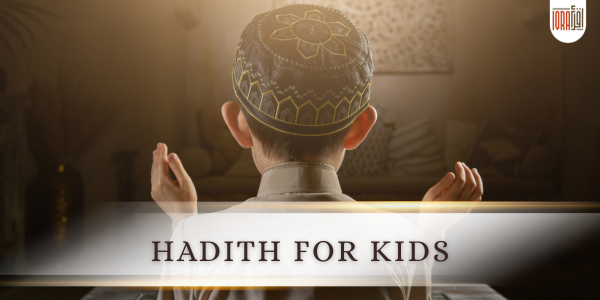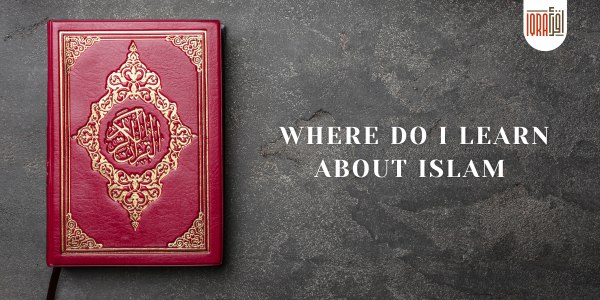The word Hajj evokes deep emotions in the hearts of Muslims. It’s not just a journey—it’s a rebirth, a cleansing, a chance to stand on the plain of Arafah and cry out to Allah with tears of regret and hope. Whether you’re preparing for your first pilgrimage or simply curious, this guide will take you through everything you need to know about Hajj—its meaning, purpose, rituals, and how to prepare your heart and mind for the journey of a lifetime.

Introduction to Hajj: A Journey Beyond Travel
Hajj is one of the five pillars of Islam, a sacred duty for Muslims who are physically and financially able. Every year, millions of believers from around the world converge in Makkah, united by faith, dressed in simplicity, and guided by submission.
Unlike other trips, Hajj is a deeply transformative experience. From the very moment you put on your Ihram garments, you’re not just stepping into Saudi Arabia—you’re stepping into history, into the footsteps of Prophet Ibrahim (AS), and ultimately into divine mercy.
“And proclaim to the people the Hajj; they will come to you on foot and on every lean camel; they will come from every distant pass.” (Qur’an 22:27)
What Is Hajj? Understanding the Meaning Behind the Pilgrimage
Hajj is an annual Islamic pilgrimage to Makkah, performed during the Islamic month of Dhul Hijjah. It commemorates the trials of Prophet Ibrahim, Hajar, and their son Isma’il. It’s a journey of the soul, a rehearsal for the Day of Judgment, and a cleansing of past sins.
Every act in Hajj—from the Tawaf around the Kaaba to the stoning at Mina—has a meaning. It’s not ritual for ritual’s sake. It’s action with remembrance. It’s movement with intention.
The Importance of Hajj in Islam
Hajj is more than a recommendation. It’s an obligation.
Why is it important?
- It’s a pillar of Islam.
- It symbolizes unity among Muslims.
- It cleanses sins, as the Prophet ﷺ said: “Whoever performs Hajj for Allah’s pleasure and avoids all forms of sin, he will return as a newborn.” (Bukhari and Muslim)
The reward? Paradise. The transformation? Life-changing.
Who Is Required to Perform Hajj?
Every Muslim adult who meets the following conditions must perform Hajj at least once in their lifetime:
- They are physically healthy.
- They are financially capable.
- The path to Hajj is safe and accessible.
Women must be accompanied by a mahram, according to most scholars.
How Long Does Hajj Take to Complete?
The core Hajj rituals span five days—from 8th to 12th Dhul Hijjah. However, many pilgrims stay longer for preparation and spiritual reflection.
Key Steps of the Hajj Pilgrimage
Here is a breakdown of the major rituals:
| Day | Ritual | Description |
|---|---|---|
| 8 Dhul Hijjah | Ihram & Mina | Pilgrims enter the state of Ihram and travel to Mina. |
| 9 Dhul Hijjah | Arafah & Muzdalifah | Standing at Arafah, the heart of Hajj. Overnight in Muzdalifah. |
| 10 Dhul Hijjah | Eid & Stoning | Sacrifice, shaving/cutting hair, stoning of the devil. |
| 11-13 Dhul Hijjah | Tashreeq Days | Daily stoning in Mina and continued reflection. |
What Is Ihram and Why Does It Matter?
Ihram is a spiritual state of purity. It begins with donning simple white clothing (for men) and modest attire (for women). It strips away class, status, and identity.
You become one of the millions. Equal in faith. Equal before Allah.
The Sacred Sites of Hajj and Their Significance
- Kaaba (Tawaf): Circling the house of Allah.
- Sa’i (Safa & Marwa): Honoring Hajar’s search for water.
- Arafah: The essence of Hajj. The Prophet ﷺ said: “Hajj is Arafah.”
- Mina: The camp of patience and reflection.
- Muzdalifah: A night under the stars, collecting pebbles and submitting to God’s will.
Preparing for Hajj: Spiritually, Mentally, and Physically
Preparation isn’t just packing luggage. It’s repenting from sins. It’s reading books. It’s forgiving others before seeking forgiveness from Allah.
Enroll in this 5-hour detailed Hajj course from IQRA Network to prepare deeply and properly. You’ll learn every step in a structured, easy-to-understand format.
Ready to begin your journey? Sign up here.
Hajj for Women: Rules, Advice, and Reflections
Women experience Hajj uniquely. Modesty, privacy, and safety are key. While the obligations remain the same, scholars allow some concessions, such as not performing Tawaf al-Wada’ during menstruation.
Health and Safety Tips During Hajj
- Stay hydrated.
- Use sunscreen and umbrellas.
- Know emergency exits.
- Stick with your group.
- Memorize dua and keep your documents safe.
Common Mistakes During Hajj and How to Avoid Them
- Rushing rituals.
- Getting angry or impatient.
- Not learning the rulings beforehand.
- Ignoring fellow pilgrims.
Knowledge prevents mistakes. Take the IQRA Hajj course to avoid regret.
Spiritual Benefits of Hajj That Transform Lives
Hajj humbles the arrogant. It comforts the broken. It rebuilds the lost.
After Hajj, hearts soften. Faith strengthens. Lives realign with Allah’s pleasure.
Hajj Costs and How to Budget for It
While costs vary by country and package, budgeting wisely over the year is essential.
Tips:
- Open a “Hajj” savings account.
- Cut luxury spending.
- Plan at least one year ahead.
Stories from Pilgrims Who Went Before You
Thousands return with eyes filled with tears, stories of acceptance, and hope renewed.
“I was lost in the world, but at Arafah, I found myself.”
Your Next Step: Be Ready for the Call
If you’ve read this far, maybe your heart already hears the call.
Answer it.
Register today to prepare the right way with IQRA’s expert-led Hajj course.
Or sign up to begin your journey back to your Lord.
FAQs
What is the meaning of Hajj in Islam?
Hajj means to journey toward something important. In Islam, it is the pilgrimage to Makkah, done once in a lifetime if able.
Can Hajj be performed without a group?
Though possible, it’s advised to go with a trusted group for support, logistics, and guidance.
Do I need to speak Arabic to perform Hajj?
Not necessarily. Knowing the key duas and steps in your language is sufficient. However, learning Arabic enriches the experience.
Is there an age limit for Hajj?
There’s no maximum age. Children can attend, but Hajj becomes obligatory only after puberty.
What’s the best time to prepare for Hajj?
Start preparing at least 6–12 months in advance. Courses, budgeting, and spiritual preparation take time.
Where can I learn all the rulings of Hajj?
Take IQRA’s 5-hour course on Hajj and Fiqh here.
Conclusion: The Call Awaits You
You may delay a vacation, skip a party, or postpone a dream. But don’t delay Hajj. It’s not just a trip; it’s an invitation to stand before your Creator, with your heart exposed and your soul seeking.
Hajj changes lives. Let it change yours.
Inbound Link Suggestions:
Outbound Link Suggestions:




0 Comments
Oops comments are disabled